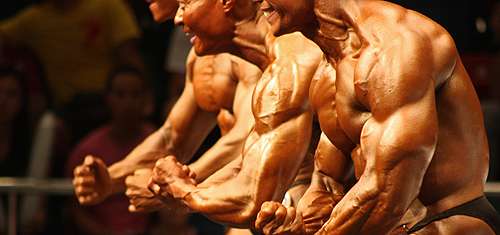How anorexia and 'bigorexia' in men relates to perceptions of masculinity

(Medical Xpress)—Self-perceived masculinity is higher in men with muscle dysmorphia, popularly called 'bigorexia', than other gym users, while men with anorexia nervosa relate more strongly to feminine stereotypes, research contributed to by the University of Sydney has found.
The findings are published in the Journal of Eating Disorders today.
Research over the last several decades has shown that increasingly men are admitting to being unhappy with their body image. This may show itself in either a desire to lose weight and become thinner, or to gain weight and become more muscular.
Previously sexuality has been believed to be one of the main driving forces behind body dysmorphia in men but this study suggests that how men view themselves is more important.
Researchers from the University of Sydney and the Australian National University used a questionnaire designed to identify how study participants viewed themselves in comparison to culturally accepted stereotypes of masculine thoughts and behaviors.
The results showed that men preoccupied with becoming more muscular, as in muscle dysmorphia, had a greater preference for traditional masculine roles, whereas men with a high desire for thinness, as in anorexia nervosa, displayed greater adherence to traditional feminine roles.
Study leader, Dr Stuart Murray from the Redleaf Practice, said the research results do "not mean that that the men with anorexia were any less masculine, nor that the men with muscle dysmorphia were less feminine than the control subjects recruited. It is however an indication of the increasing pressures men are under to define their masculinity in the modern world".
Co-author Professor Stephen Touyz, from the University's School of Psychology said, "This study, if replicated, may provide valuable information for researchers to develop better treatment programs for men with eating disorders."
More information: Masculinity and femininity in the divergence of male body image concerns Stuart B Murray, Elizabeth Rieger, Lisa Karlov and Stephen W Touyz, Journal of Eating Disorders, 2013.













